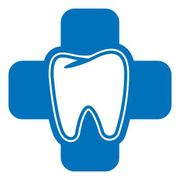
Cavities, also known as dental caries, are small openings or holes in the teeth. They may spread and allow bacteria to enter the teeth, leading to complications and discomfort. Fortunately, there are several ways to prevent them. Here's more about how cavities develop and what dentists suggest doing to keep your mouth healthy.
What Causes Cavities?
Dental caries form as a result of bacteria. These microbes collect in plaque, which is a sticky film that accumulates on teeth and along the gum line. Bacteria in plaque consume sugary and starchy substances that get stuck to teeth while you eat and drink. While these microbes feed, they release acids that deteriorate minerals in the enamel, or the protective outer covering of teeth. This is the first stage of cavity development, known as tooth decay. If plaque hardens on teeth, this may trap bacteria against them, making decay and cavities more likely to form.
As this process continues, acids may reach the dinner dentin layer, causing the formation of deeper openings and holes. These can worsen and reach the innermost nerves and blood vessels, known as pulp. Bacteria may get inside these holes and infect inner tooth material and roots, leading to pus-filled pockets known as abscesses.
What Are the Signs and Symptoms?
In the early stages, cavities are often asymptomatic. However, as they spread and deepen, acids may absorb into inner nerves and cells. Additionally, food residues, beverages, and saliva can enter holes in the teeth and make contact with the dentin and pulp. This may lead to tooth sensitivity and mild to sharp pain, especially while chewing and drinking hot or cold beverages. You might also notice visible holes in the teeth and white, black, or brown spots.
What Are Some Prevention Tips?

Brushing twice and flossing once daily is the most effective way to prevent cavities. These dental hygiene tasks wash plaque and bacteria off tooth surfaces and the gum line. Using a fluoride toothpaste or mouthwash can re-mineralize tooth surfaces, strengthening the enamel and making it more impervious to decay. Rinsing your mouth between meals and drinking plenty of water each day may remove sugary and starchy residues, depriving bacteria of a food source; this can also wash away harmful microbes.
A dentist may provide sealants, which are clear plastic coatings applied to the chewing surfaces of the back teeth. This can prevent plaque and bacteria from getting stuck in crevices and forming caries. Additionally, consuming fibrous fruits and vegetables may cleanse tooth surfaces and stimulate saliva production to keep teeth clean and cavity-free.
If you ever experience symptoms of cavities, head to Ronald W. Ristow, DDS. This dentist provides fillings and dental crowns along with routine cleanings and exams to clients throughout Oconto County, WI and surrounding areas. Call (920) 846-3163 to book an appointment for dental care, and visit the website to learn more about how they can protect your teeth, mouth, and gums. Text JOIN to (920) 249-5938 to receive news and updates via text message.
About the Business
Have a question? Ask the experts!
Send your question

